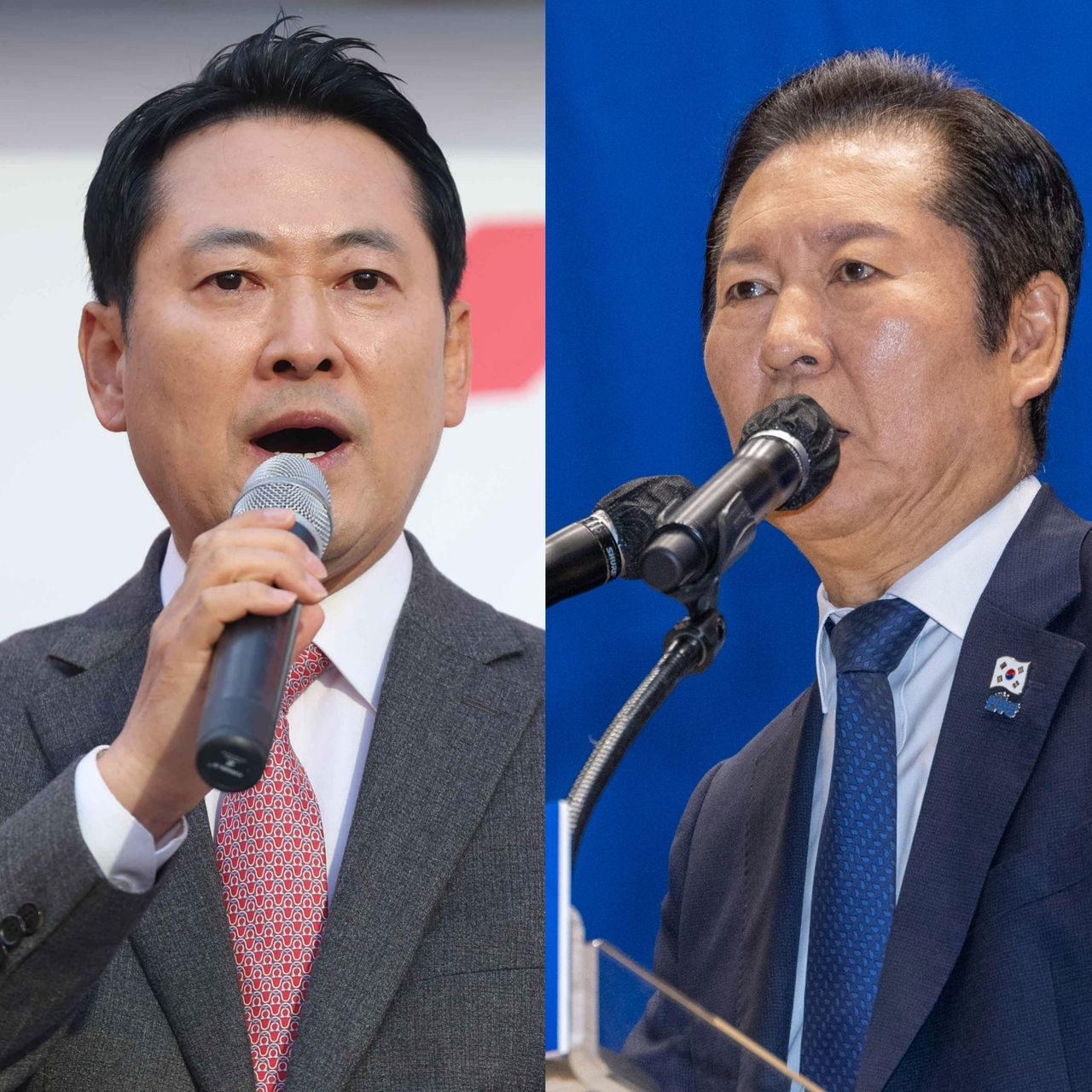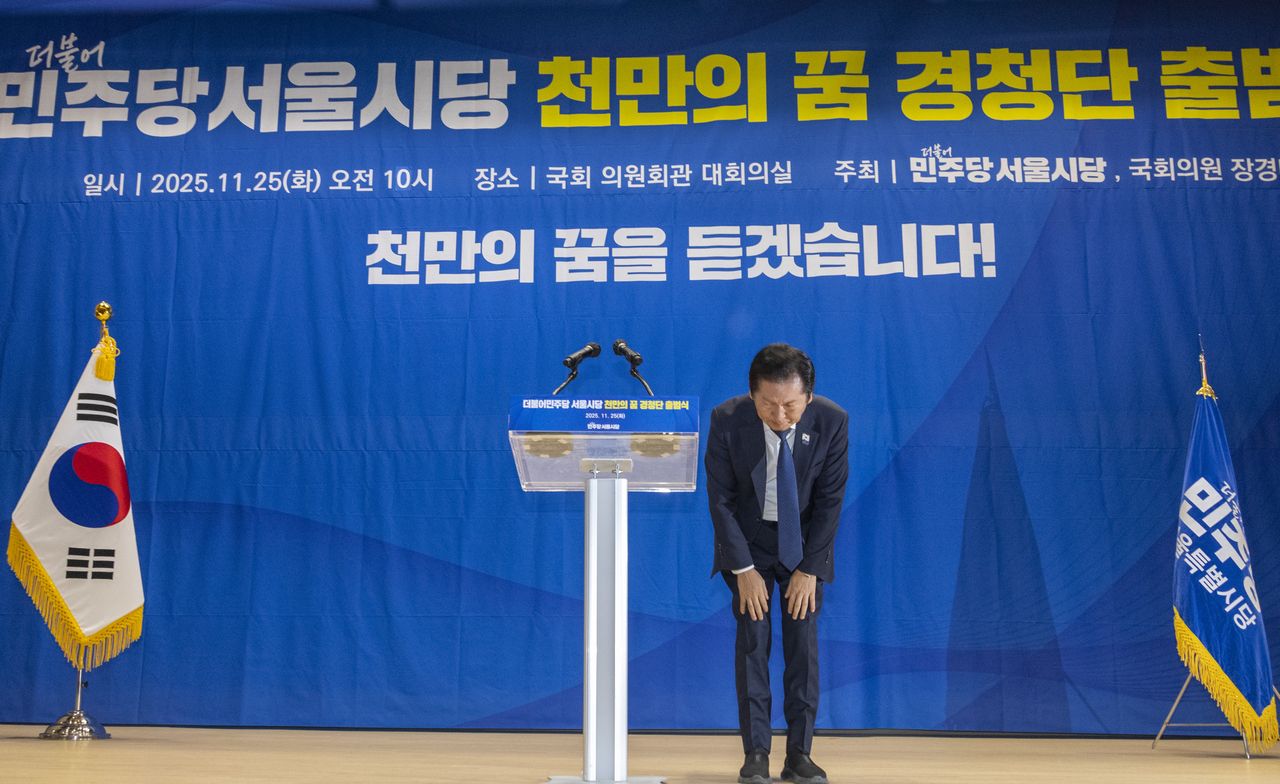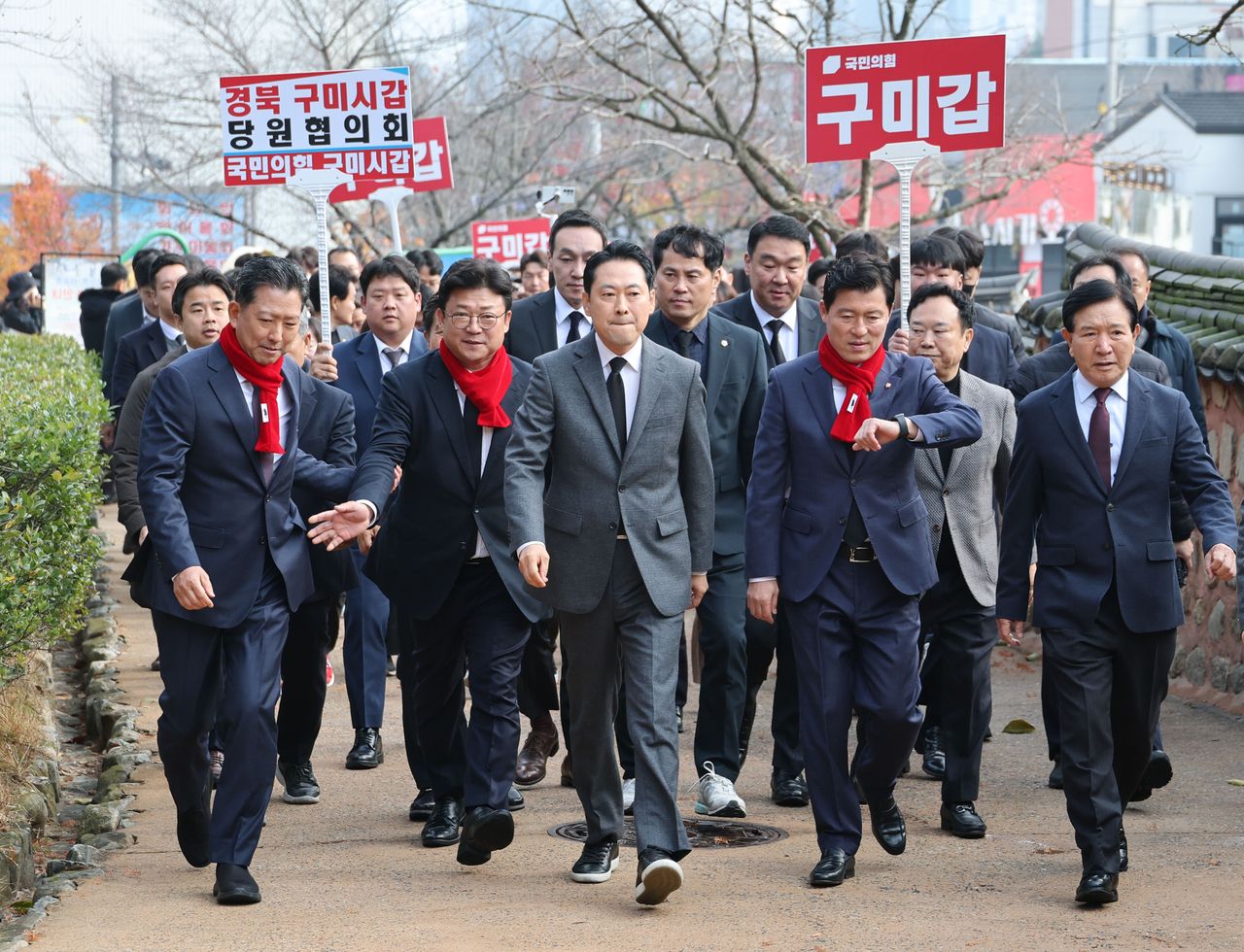 South Korea’s two major political parties are moving to rewrite their primary rules ahead of next June’s local elections, setting off contentious internal battles over who should hold greater sway in shaping their candidate slates.
South Korea’s two major political parties are moving to rewrite their primary rules ahead of next June’s local elections, setting off contentious internal battles over who should hold greater sway in shaping their candidate slates.
The ruling Democratic Party of Korea and the main opposition People Power Party are both seeking to give greater influence to dues-paying members in their internal primaries, though they are pursuing sharply different paths to get there.
Across the aisle, critics warn that increasing the weight of members’ votes risks amplifying the voices of party loyalists in both camps, widening their distance from the broader electorate, including moderate voters.
The People Power Party is moving to raise the weight of dues-paying party members’ votes in next June’s local-election primaries from 50 percent to 70 percent, correspondingly reducing the share allocated to public polling.
Within the Democratic Party, leader Rep. Jung Chung-rae has faced backlash after introducing what he calls a “one-member, one-vote” rule. The proposal would give ordinary, dues-paying party members the same voting power as party delegates — including lawmakers, regional chairs and senior officials — in internal party elections such as leadership contests and candidate primaries.
Under the current system, a delegate’s vote must carry less than 20 times the weight of a rank-and-file party member. In the previous party convention in August, one delegate’s vote was equivalent to 17.5 votes from ordinary dues-paying members.
 Fears of regional marginalization
Fears of regional marginalization
The Democratic Party has postponed a vote on revising its party constitution and rules to adopt a system that would equalize the voting power of delegates and dues-paying members, moving the schedule from Nov. 28 to Dec. 5.
The delay came after senior party official Rep. Lee Un-ju walked out of a public Supreme Council meeting on Monday in protest of what she called a rushed push. Heated exchanges among party lawmakers also spilled out of a closed-door party meeting later in the day.
The crux of the internal feud lies in the absence of a sufficient deliberative process before advancing such a major overhaul — and, more importantly, in the fear that a mechanical application of the new system would marginalize voices from the party’s weaker regions.
Some Democratic Party lawmakers have openly warned that such an outcome would undercut the party’s stated goal of broadening its footing across the country. Regions such as Yeongnam, which includes the North and South Gyeongsang provinces, and Gangwon Province — where the party has historically struggled — would see their influence virtually erased.
Most of the Democratic Party’s dues-paying members are concentrated in Seoul, the broader capital area and Honam, which comprises the North and South Jeolla provinces with Gwangju.
“Although the party aims to broaden its footing as a nationwide party, many argued internally that a strict ‘one-member, one-vote’ system would in practice fail to reflect the preferences of party members in regions where the Democratic Party is weak, particularly in the Yeongnam area,” Rep. Jeon Hyun-heui said Tuesday in an interview with local broadcaster Channel A.
“For that reason, some said the party needs a more deliberative process to build a structure that can better capture the voices of members in these underrepresented regions and ensure their preferences are meaningfully incorporated.”
Echoing the sentiment, Rep. Yoon Jong-kun said Tuesday that the proposed system ignores the existing imbalance between population and party-member distribution during his interview with state-run broadcasting KBS.
Yoon noted that while the Honam region accounts for only about 10 percent of the national population, it makes up roughly 35 percent of dues-paying members, whereas Yeongnam holds about a quarter of the population but less than 10 percent of the membership.
 Backlash over member-heavy rules
Backlash over member-heavy rules
The People Power Party is also facing internal resistance of turning inward, as a task force led by five-term lawmaker Na Kyung-won prepares to propose raising the share of party-member votes in next year’s local-election primaries from 50 percent to 70 percent.
“Local elections are not contests to choose a party leader. They are arenas where the public directly casts ballots,” Rep. Yoon Sang-hyun said on Tuesday in denouncing the plan on Facebook. “Reducing the weight of public opinion while increasing the share of party-member votes runs counter to the will of the electorate and risks making the party look closed and insular.”
Yoon further underscored, “Party sentiment matters, but if we lose sight of the direction and balance provided by public sentiment, our party will fall into a deep and narrow pit.”
Rep. Kim Yong-tae pointed out that “both the People Power Party and the Democratic Party are once again sliding toward politics that caters primarily to their most hard-line supporters.”
“I worry that if the Democratic Party moves toward becoming a more closed party — and the People Power Party gravitates in the same direction — it will only deepen public disillusionment with politics,” Kim said in an interview with KBS.
“To become parties that reflect the public’s common sense and broadly shared expectations, they cannot keep governing with an eye only on their core supporters. They need to move toward being more open and accessible political parties.”
- Unification minister meets US envoy, stresses bilateral cooperation in resuming US-NK dialogue
- Lee pays tribute at Korean War Memorial in Ankara
- S. Korea asks Lone Star to reimburse legal costs after winning annulment in investor dispute
- Samsung, Reliance chiefs push deeper AI-chip alliance
- [Stars up close] Why Park Jeong-min is going viral as Korea’s most down-to-earth star









Most Commented